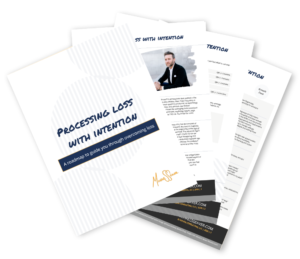The creation of the “think global, act local” concept is commonly attributed to Patrick Geddes, a late 19th – early 20th century Scottish biologist, sociologist, philanthropist, and forward-thinking town planner. Similarly, the Japanese were the first to develop the concept of “glocalization”, the practice of conducting business in accordance of both local and global considerations. As a result of demand by consumers, many western organizations have started to adopt these ideologies in their daily business practices.
Many of the same lessons that can be learned from those concepts apply to an individual and the development of a personal brand. In recent blog posts, I’ve written about how individuals are functioning like corporations, about 21st century job interviews, and practices to search continually for your next job. Whether changing career paths or developing additional leadership expertise, professionals need to develop a consistent brand that can be shared with various stakeholders.
Think Global
Professionals in the 21st century need to think globally about their image or brand. They need to:
- Be Open and Accessible. Through a variety of channels (email, phone, SMS, face-to-face, social media, etc), you must be reachable and easy to communicate with. As a result, you will begin to strengthen relationships and build credibility with people from a variety of backgrounds.
- Apologize Sincerely. When making mistakes, apologize quickly and with heart. Making mistakes is acceptable; making the same mistake multiple times is a bad habit. Be authentic and apologize for errors through many of your channels so that your stakeholders know you are working to not make the blunder again.
- Display Passions. One of the quickest ways to establish credibility is to work in a job where you get to display your passions. Your uniqueness and desire to be great at something makes you interesting and attractive to those around you.
- Network. Through a variety of transparent channels, search for growth through your network of colleagues and through the expansion of your network globally. There are a variety of mediums you can use to achieve this (LinkedIn, blogging, your educational institution, in-person events, etc.) and the most important thing you can do is to connect with new people multiple times per week.
- Share Power. Power is meant to be shared and grown. Power in the hands of the few leads to unease and fracturing of relationships. By sharing your knowledge and power with others, you will develop a community of supporters and promoters of your brand. The message of what you bring to the table will be much greater if someone refers you to new clients or into new jobs.
Act Local
Concurrently, you must also act locally. The development of your personal brand includes a:
- Value Proposition. What adjectives describe your value structure, skills and abilities? If you struggle with this, look into the Myer Briggs, Strengthsfinder, DiSC, Hogan, Kolbe, Harrison, 360˚ feedback, or TTI’s TriMetrix assessments. All will help you develop a consistent message online and on ground. Once you find what makes you unique, you must live it every day.
- Focus on Health. Sugar and animal products are the new tobacco. If you want to be fit physically, mentally, and emotionally, consider reducing or eliminating the foods that inhibit optimal functionality. Additionally, how you dress, personal hygiene, how you carry yourself and communicate non-verbally, how you speak, how you use color to show your brand, and being positive towards life all contribute to your overall health and how people perceive you.
- How You Out-Behave Others. The next frontier of decision-making will rest solely on a person’s character. Does he out-behave those around him? If not, can we trust him to be a meaningful partner on future projects? Act with integrity, be trustworthy, communicate honestly, and do what is right. It takes significant time to develop a brand in the mind of a consumer, but only one misstep to tarnish it forever.
- Triple Bottom Line Focus. In the new economy, simply achieving financial wealth won’t be enough to lead a fulfilling life. Humans want autonomy in their work, the ability to master a craft, and purpose in their actions. Shifting your focus to how you can positively impact people, planet and profit in every decision you make will help you to establish your brand and be memorable.
- Bias for Philanthropy. Regardless of your socio-economic status, helping those who may be less fortunate always feels good. If you volunteer your time, talent, and treasure regularly, people will buy into your activities and ask to participate with you.
Glocalization of your personal brand is about being a character-driven person and showing your authentic self through a variety of mediums. Transparency will be of utmost importance as you develop and showcase your talents to the world. Organizations are going to continue to flatten, the war for talent will continue to heat up and as recruitment practices change, you will have little choice but to take much more proactive stances in your approach to brand building.
With a sincere focus on the triple bottom line, you will be able to out-behave those around you and build a brand that others choose to follow.






Connect with me